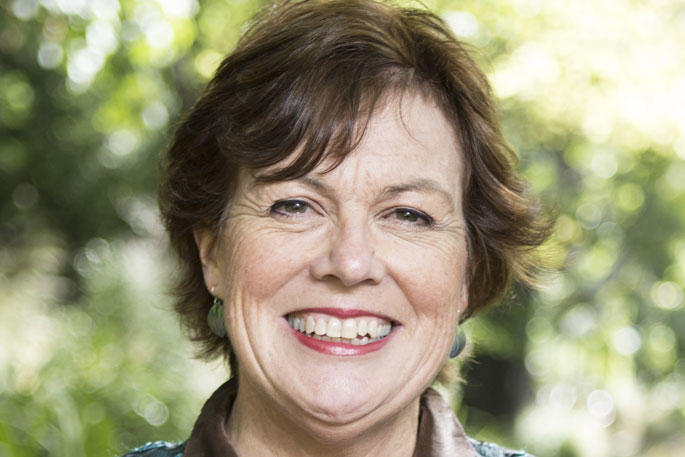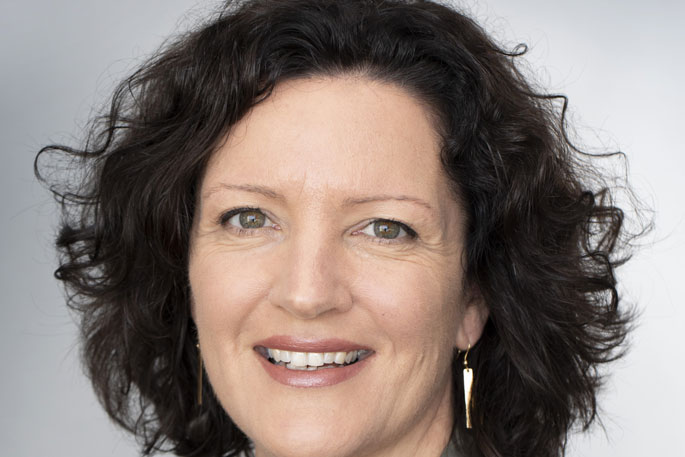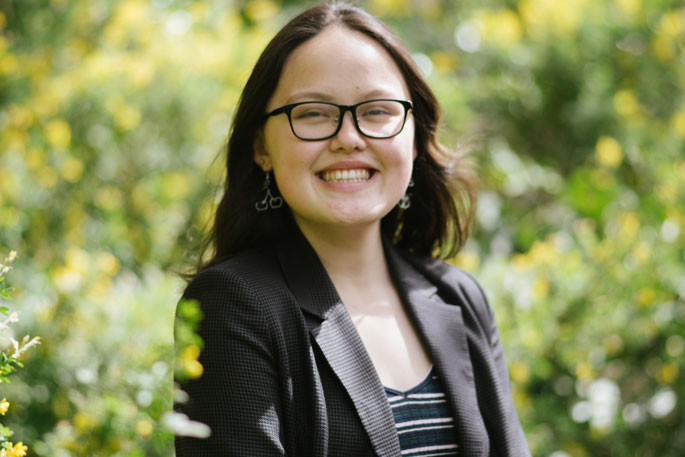A youth-led campaign to lower the voting age to 16 will take its case to the Court of Appeal in an effort to push through the change before next year's local body elections.
The Make It 16 campaign failed in the High Court in Wellington last year to convince a judge to declare the current minimum voting age of 18 discriminated on the basis of age.
Only Parliament can change the law but a ruling it was discriminatory could have helped the cause.
Make It 16 co-leader Gina Dao-McLay says the group will now take their fight to the Court of Appeal in August, with the help of lawyers who took on the case pro-bono.
They want 16 and 17-year-olds to be able to vote at the next local body elections on October 8, 2022, where voter turnout across the country in 2019 was at 42 per cent.
Dao-McLay says lowering the voting age to 16 will mean most of those eligible to vote for the first time would still be in high school, and it would make sense to offer more robust civics and citizenship education.
The Wellington university student, who voted for the first time in last year's general election, says she found out about civics and politics through doing her own research.
The Make It 16 campaign's position was that students were affected as much by local government decisions as adults.
'The city council here in Wellington is looking at cycleways, the regional council is looking at public transport," Dao-McLay says.
'About five per cent of students own a car so the decisions they make on transport are really going to affect us.”
Equally, decisions on housing will affect students now and in the future, she says.
The campaign also planned a petition and hopes to be heard before select committee on the issue.
University of Canterbury associate professor of political science and international relations Bronwyn Hayward says lowering the voting age should go hand-in-hand with more focused civics and citizenship education.
In 2019, Prime Minister Jacinda Ardern acknowledged the need for more civics education, particularly around the electoral system, and last year in her leaders debate against National leader Judith Collins she said such education was needed ahead of lowering the voting age.
 Canterbury University political scientist Bronwyn Hayward says lowering the voting age to 16 is a "no brainer".
Canterbury University political scientist Bronwyn Hayward says lowering the voting age to 16 is a "no brainer".
Hayward says the government now has the resources available through the Ministry of Education's Civics and Citizenship Teaching and Learning Guide, which was published last July, 'so how about the vote?”
'There's lots of good and sensible reasons for votes at 16. It's kind of a no-brainer, it's just that New Zealanders haven't thought about it.
'We have this strong, older resistance – only about 7 percent of New Zealanders think it's a good idea… but it increases the vote for confidence and engagement.”
Aotearoa Social Studies Educators Network national facilitator and former social studies teacher Dr Maria Perreau says research has shown countries that lower their voting age to 16 have higher youth engagement.
'And if young people start voting younger they are more likely to vote for the rest of their lives,” Perreau says.
'People are afraid that young people don't know or understand enough and couldn't possibly make these important decisions but they are already making fairly big decisions for themselves around really important things.
'And they are affected by stuff. The decisions that get made about them and for them are already quite impactful on their lives, and giving them a voice does engage them and keeps them engaged.”
For the first time in Wales, 16 and 17-year-olds were able to vote in the parliamentary election on May 7.
The lowering of the voting age there followed a campaign that gathered cross-party support.
It also followed Scotland, where 16-year-olds were allowed to vote for the first time at the 2014 independence referendum and the 2016 Scottish parliament election.
 Christchurch City Councillor Sara Templeton believes teenagers are responsible enough to vote appropriately from age 16.
Christchurch City Councillor Sara Templeton believes teenagers are responsible enough to vote appropriately from age 16.
Christchurch City Councillor Sara Templeton, a former secondary school teacher, says more young people were getting involved in civic discussion and action.
'A lot of that is focused around social justice and the environment, especially climate change.”
The council worked with mostly primary schools on projects that exposed students to civics education, Templeton says.
In a submission to the government's justice committee inquiry into the 2019 local body elections to address low voter turnout, Christchurch City Council added its voice to the growing campaign to reduce the voting age from 18 to 16.
But it says lowering the voting age must be accompanied by a greater focus on civics in schools.
'One of the things that's really clear is that as human beings we all retain information more if we see that it's relevant in a relatively short period of time,” Templeton says.
'So if you had the voting age at 16 for example, students would be more likely to be paying attention to education about how the system works, the importance of the democratic system, what councils and governments do and how laws are made, if they saw within this relatively short period of time that they would have a chance to vote.
'And we know that your early habits tend to dictate what you do later in life.”
The notion that 16-year-olds are too immature to vote doesn't wash with Templeton.
'If we trust them to learn how to drive then surely we can trust them to think about how the future of their city or country might be, and to vote appropriately.”
Minister for Local Government Nanaia Mahuta says no changes are planned to the voting age for the 2022 local elections.
"However, I think that continued debate on the voting age is a healthy thing for New Zealand's democracy."
Changes to the Electoral Act 1993 would be required to lower the voting age for both parliamentary and local government elections.
Mahuta says no work had been done to investigate how the voting age might be lowered for local elections only.
At a minimum this will require legislative change and establishing registration processes for 16 and 17-year-olds.




8 comments
Responsibility?
Posted on 24-05-2021 17:14 | By morepork
It IS a no-brainer. Anyone with no brain will support it... What evidence do we have for 16 year-olds exercising restraint, thought, and responsibility...? They will vote with whatever viewpoint has been instilled in them in their Civics Class. The extra 2 years makes a big difference, as awareness expands and they realize that things are not just Black and White.
No way
Posted on 24-05-2021 17:14 | By Mein Fuhrer
at 16 they're most likely to vote for socialist leaning parties after their journey through the PC education (indoctrination) facilities. If anything it should be raised to 21 when they have a more logical mind.
Utter Madness
Posted on 24-05-2021 19:31 | By Gigilo
You have to be joking. No way to be mature enough at that age, or time to form an opinion on their own. In fact at that age a person is solely acting on what they have been taught at school because and lets face it doing virtually what your parents tell you is the way we all grew up.........right?
Responsible
Posted on 25-05-2021 07:52 | By Yadick
If they are responsible enough to vote at 16 then they're responsible enough to be dealt with by the adult court system rather than the mampy pampy Youth 'Justice' System. The 2 should go hand in hand.
Get your hands off our democracy
Posted on 25-05-2021 08:44 | By B.C.
This is a cynical power-grab by the left to increase their votes at election time, it has absolutely nothing to do with empowering young people. Any proposal to decrease the voter age will be championed by people who, without exception, have a certain political leaning. There is a link between age and voting behavior, younger people have a far greater tendency to vote "liberal" and older older people are more likely to vote conservative.
May as well
Posted on 25-05-2021 16:05 | By Slim Shady
They will be just as stupid as most of the electorate. We are going down the tubes.
Yadick has a point...
Posted on 25-05-2021 17:48 | By morepork
If they can vote, then they can be subject to Adult Law. What happened here is that we stopped conscripting people (rightly, as it happens... but that's not the point) into military service. No-one liked the idea of sending 16 year-olds off to war (although as populations got decimated in WW1 they did do that...), so 21 was decided to be the age of responsibility. The age of Criminal Responsibility here is 10, and kids of that age can be charged. The rest of the world sees this as cruel and stupid, but the Courts make sure there are checks and balances in place. We lowered the age of responsibility to 18 in response to pressure from Politicians who coveted the young vote, and teens, who were drinking illegally anyway. This pushed illegal drinking down to the 16s, and now they want the vote... Get sober, first...:-)
Torn to be honest
Posted on 26-05-2021 14:14 | By The Professor
On one hand I don't think 16 year olds have enough experience to make informed votes. But then on the other hand, if a 16 year old has to pay tax on their earnings, then they should be allowed to have a say on what happens to the taxes they pay. The other alternative is to abolish income tax for under 18s.......we can't have it all ways.
Leave a Comment
You must be logged in to make a comment.